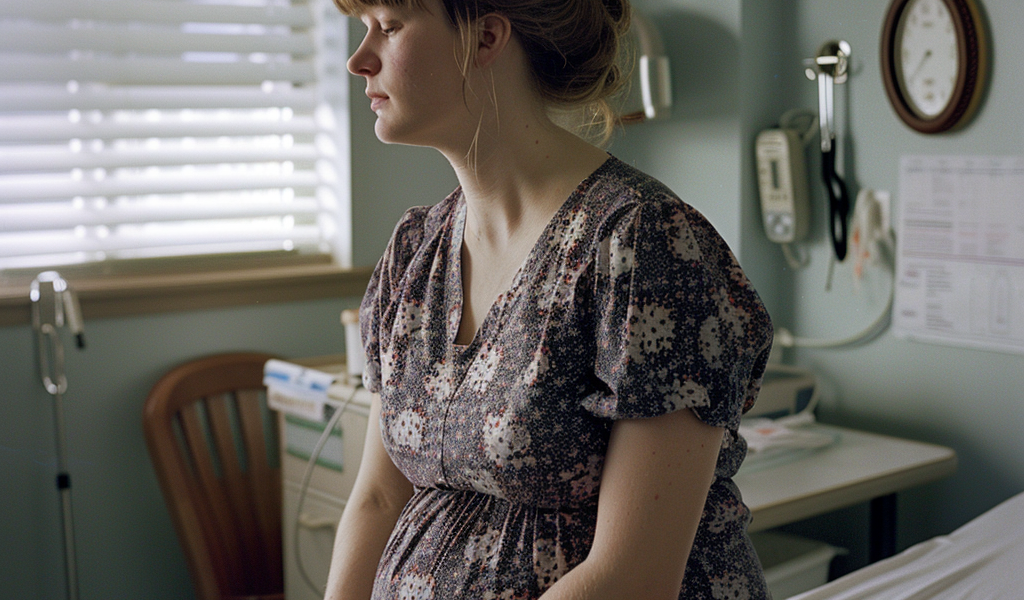As the United States approaches its first presidential election since the landmark Roe v. Wade decision was overturned, the spotlight is firmly on the implications of stringent abortion laws across various states. Among the many stories that have emerged, the experience of Amanda Zurawski stands out, highlighting the harrowing realities faced by women in states with restrictive abortion regulations.
Amanda Zurawski, who was 18 weeks pregnant with her first child, found herself confronting a devastating medical situation. After enduring a year and a half of fertility treatments to conceive, she experienced complications that led her to seek medical assistance. Upon consultation, her doctors delivered the heart-wrenching news that the fetus had no chance of survival. However, living in Texas, known for some of the most restrictive abortion laws in the nation, her situation became even more complicated.
In Texas, the legal landscape surrounding abortion shifted dramatically with the signing of the Texas Heartbeat Act (SB8) in May 2021. This legislation prohibits abortions once embryonic or fetal cardiac activity is detected, typically around six weeks of pregnancy. This law, coupled with the subsequent fall of Roe v. Wade in June 2022, created a precarious environment for women like Zurawski, who were facing dire medical circumstances.
Zurawski’s doctors informed her that, according to the law, intervention could only occur if her health deteriorated to a life-threatening state or if the fetus’s heart stopped beating. This situation forced her into an unimaginable dilemma, as she described it as a “horrific version of a staring contest: whose life would end first? Mine, or my daughter’s?” The emotional toll of such a predicament is unfathomable, especially for a woman who had longed for motherhood.
In a bid to protect themselves legally, her healthcare providers advised her to remain within a 15-minute radius of the hospital. This limitation effectively eliminated any possibility of seeking care in a state with more lenient abortion laws. The risks of traveling to another state could lead to severe complications, including septic shock, making the prospect of leaving Texas a dangerous gamble.
Zurawski’s heartbreaking story is not an isolated incident; it reflects a broader trend affecting many women across the country who find themselves in similar situations. The restrictive laws not only impact access to abortion but also place women’s health in jeopardy, as medical professionals navigate the complexities of legal compliance while trying to provide necessary care.
As election season heats up, the narratives surrounding women’s reproductive rights are becoming increasingly pivotal. Many voters are now looking at candidates’ positions on abortion as a crucial factor in their decision-making process. For women like Zurawski, the stakes are extraordinarily high, as they seek to ensure that their rights and health are prioritized in political discourse.
In Arizona, the conversation is similarly charged. Gabrielle Goodrick, one of the few abortion providers in the state, has expressed that the current political climate could significantly influence voter sentiment, potentially turning the state blue in response to restrictive abortion measures. This sentiment echoes across various states, where women and their advocates are rallying for change.
As the election draws nearer, the stories of women like Amanda Zurawski serve as poignant reminders of the real-life implications of political decisions. Their experiences underscore the urgent need for comprehensive discussions about reproductive rights and the importance of safeguarding women’s health in legislative agendas.
With the backdrop of Amanda’s story and countless others, voters are urged to consider the implications of their choices at the ballot box. The future of reproductive rights hangs in the balance, and the voices of women facing these challenges must be heard loud and clear.
As the nation prepares for a pivotal moment in its political landscape, the focus on women’s rights and health care access will undoubtedly play a crucial role in shaping the future. The call to action is clear: ensure that the rights of women are not only recognized but fiercely protected in the face of restrictive laws.





